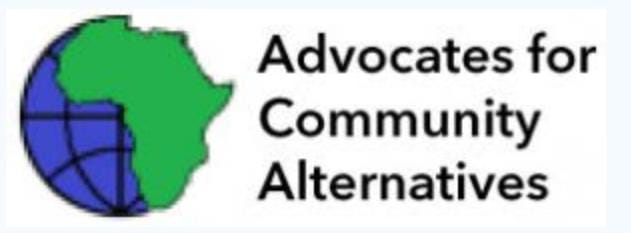What happens when students leave their lecture halls and step into farms, boreholes, and villages? At Delta State University in Abraka, Nigeria, they found out. A community science training workshop, led by Dr. Ibrahim, the main resource person, moved science beyond theory—teaching lecturers, researchers, and students how to practice science with communities, not just for them. The aim was to build a pipeline of local expertise that listens first, tests carefully, and turns results into action.
Supported by Advocates for Community Alternatives (ACA), the sessions blended short lectures with hands-on practicums. Dr. Ibrahim guided participants through the fundamentals of community science, using manuals specially prepared for the training. These manuals covered practical steps—from sampling protocols to interpreting results—and became take-home references for participants, ensuring the learning wouldn’t end with the workshop.
Student teams worked alongside faculty to design simple, rigorous protocols: how to plan a sampling route, label and store samples, document field conditions, and present results in plain language. For many, it was the first time method met real-world urgency.
Paul Adjekota, an ACA Science Fellow, mentored mixed groups of students and staff, emphasizing how data should drive decisions. “It’s not just the number,” he reminded them. “It’s what the number makes you do next.”
Professor Oghenero Ohwoghere-Asuma deepened the water-quality module, showing students how to evaluate borehole placement and interpret coliform results without jargon. In field drills, students practiced pumping and purging, sterile collection, and chain-of-custody steps—then presented what those results would mean to a village committee.
Dr. (Mrs.) Abushe led the organic manure exercise, turning a patch of ground into a living lab. Students laid out small plots, applied manure at different rates, and logged changes in soil structure and crop vigor. Back in the lab, they compared soil pH, organic matter, and nutrient readings, linking them directly to what they had seen in the field.
Students’ voices shaped the week. A final-year student admitted: “I used to think statistics ended at the spreadsheet. Now I see how a clear chart can change how a farmer spends money.” A master’s candidate added: “Designing a protocol with the community made me tighten my methods—and my explanations.”
By the end, the cohort co-authored mini briefs pairing data with action points: move boreholes away from septic systems; lime acidic soils using affordable local materials; combine organic manure with targeted fertilizer only where tests show a gap. Lecturers committed to embedding these modules in their teaching, and students proposed capstones that would return to partner communities to track outcomes in the next farming season.
The impact is already visible. Equipped with manuals and new skills, small mixed teams of students and staff are ready to support water testing in Igbogidi, soil clinics in DSC and Orhuwhorun, and follow-up trials on organic amendments.
Delta State University’s lesson is clear: when scientists and students learn to listen, test, and explain, knowledge flows in both ways. Community gains practical tools; the university gains relevance; and a new generation leaves campus ready to turn evidence into healthier water, stronger soils, and better harvests.

Recent Comments